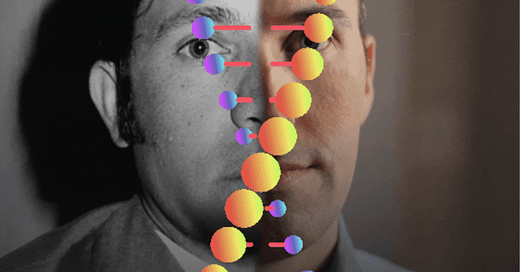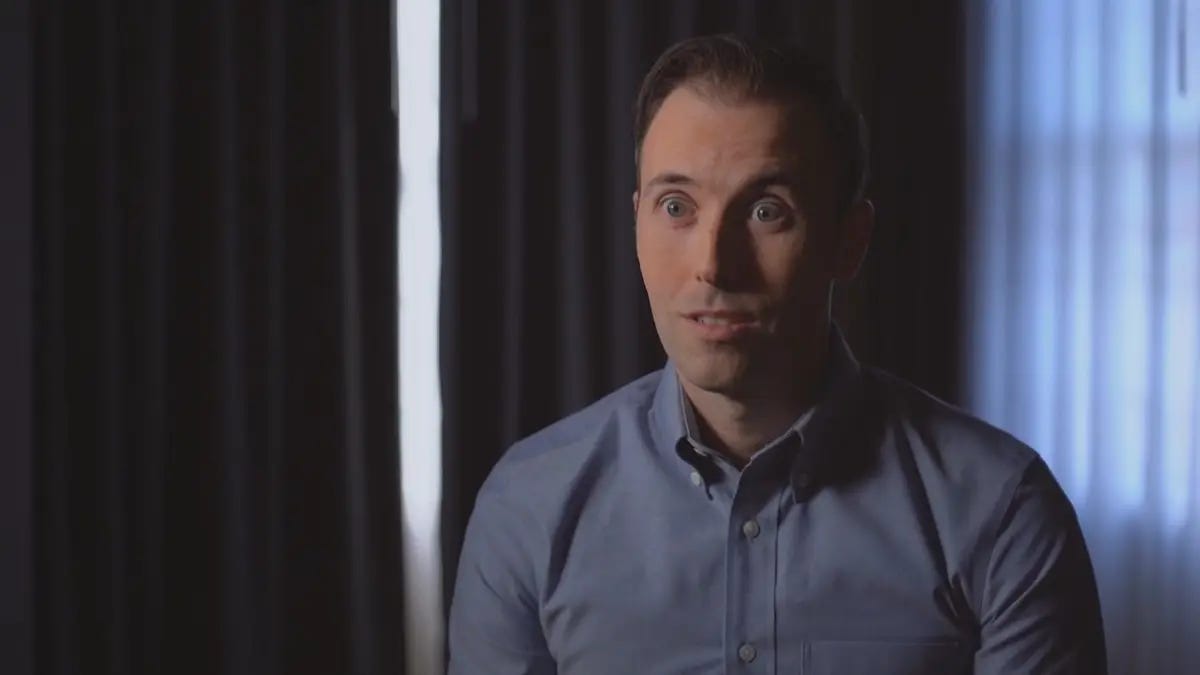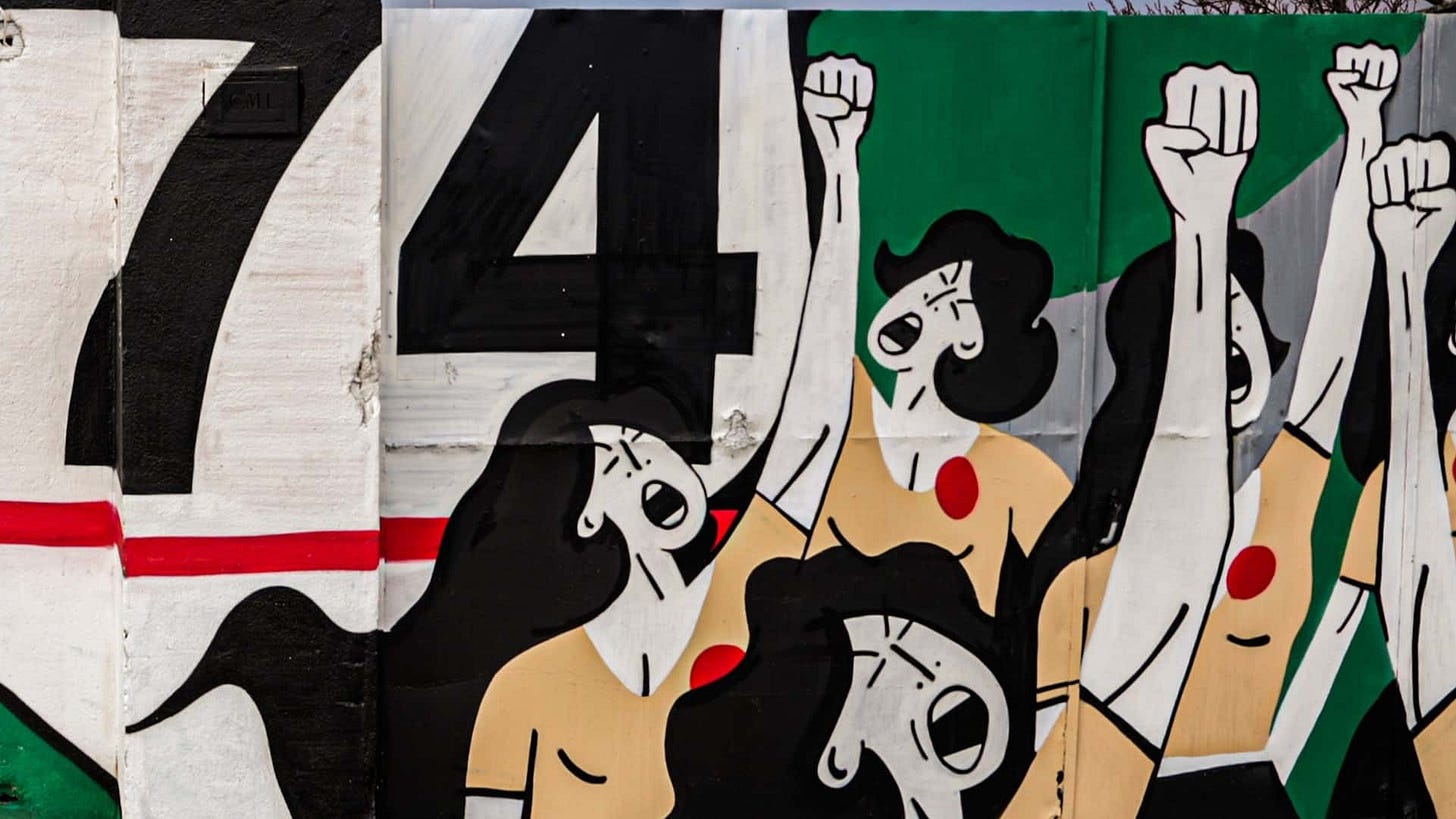Friday Briefing: The curious case of Andrew Salgueiro Maia
Good morning and welcome to PORTUGAL DECODED. Captain Fernando Salgueiro Maia, one of the heroes of the Carnation Revolution, had a secret few knew: a biological son in America. This is his story.
TALK OF THE TOWN

If enjoy reading PORTUGAL DECODED, please consider donating to keep it free and independent – your generosity means everything!
POLITICS
Prosecutors have launched a preventive probe into Socialist leader Pedro Nuno Santos over property deals. He responded by releasing official documents relating to the purchases and challenged PM Luís Montenegro to do the same (More).
Taxes have become a key issue of the May 18 elections, after a technical change to personal income tax calculations has resulted in lower refunds for many Portuguese taxpayers this year or, in some cases, unexpected bills (More).
SOCIETY
Doctor shortages will force the closure of up to ten emergency departments over Easter weekend, mainly in the Lisbon area, affecting gynecology and pediatrics. Authorities assure that all patients will be redirected and assisted (More).
In Trump news this week: the government is closely monitoring the case of a Luso-American facing deportation; a Portuguese Bishop compared Trump to Hitler; and universities refused to answer questionnaires sent by the U.S. (More).
ECONOMICS
Looks like Portugal might be taking the whole festival vibe a bit too seriously: the new global tourism campaign literally pitches the country as one big music festival, with local culture, nature, and food as the main ‘headliners’ (More).
Around 45% of Portuguese exports to the U.S. will avoid new tariffs, but key sectors like wine face uncertainty as orders are suspended and fears grow over further trade restrictions (More).
CULTURE AND SPORTS
Portugal’s pavilion at Expo 2025 Osaka exceeded expectations on opening day, drawing over 13,000 visitors. Highlighting ocean sustainability, it aims to boost cultural ties, tourism, and economic cooperation with Japan (More).
The Paiva Walkways in Arouca fully reopened this week after wildfire repairs, just in time for Easter. Restoration followed September’s fires, marking the third rebuild of this popular nature trail since its 2015 debut (More).
If enjoy reading PORTUGAL DECODED, please consider donating to keep it free and independent – your generosity means everything!
DECODER
Who is Andrew Captain Salgueiro Maia?
Andrew is a 39-year-old Luso-American living in upstate New York, who, as revelead by a recent reportage in SIC Notícias (mostly in English with Portuguese substitles), is the biological son of Captain Salgueiro Maia, the iconic officer who led the forces on the streets of Lisbon during Portugal’s 1974 Carnation Revolution. Andrew grew up in New Jersey under the name of his mother’s former partner, unaware of his true parentage until the age of 22. Although he had met Maia during childhood, believing him to be a family friend, Andrew had long harbored suspicions. In college, a friend noticed their resemblance, and after watching the movie The April Captains, he confronted his mother, who confirmed the truth. From that moment, he began a determined quest for official recognition.
How did his parents meet?
In 1977, after being sidelined from the military due to his political independence, and even though he didn’t seek any position of political power after the Revolution, Captian Salgueiro Maia was transferred, or rather “exhiled”, to Ponta Delgada in the Azores. There, he met Filomena, a young Azorean preschool teacher who had emigrated to the U.S. but was vacationing on the island of São Miguel. Although Maia was married to Natércia, with whom he adopted two children, a child from this extramarital relationship was born in April 1985 in the United States: Andrew. He is Salgueiro Maia’s only biological child.
What did Andrew do after learning the truth?
After discovering his parentage, Andrew traveled to Portugal to visit Maia’s grave in Castelo de Vide and meet people connected to his father. One of them was Captain Vasco Lourenço, who briefly mistook Andrew for Maia himself due to their striking resemblance. Lourenço arranged a meeting with Natércia, Maia’s widow, who had not known of Andrew’s existence but received him warmly and supported his pursuit of recognition. Upon returning to the U.S., Andrew legally changed his name. On August 29, 2008, a New Jersey court authorized the change, and all of his documents began to bear the name Salgueiro Maia. However, his birth certificate continued to list his mother’s former partner as his father.
What legal steps did Andrew take, and what were the results?
In 2013, Andrew filed a case in Santarém to challenge the paternity listed on his birth certificate and to confirm Captain Salgueiro Maia as his biological father. The court approved a DNA test following the exhumation of Maia’s remains. The results confirmed a 99.99996% probability of paternity. However, the court ultimately dismissed the case, not due to lack of evidence, but because the legal deadline had passed. Portuguese law allows such claims only within 10 years of adulthood or within three years of learning the truth. Andrew filed the case at 28, four months too late, and acknowledged he had learned the truth six years earlier.
Is Andrew still pursuing recognition, and what are his hopes?
Yes. Though his first lawyer, Pinheiro Coelho passed three years ago, Andrew remains undeterred. In 2024, he hired a new attorney, Rui Alves Pereira, a family law specialist exploring the possibility of an extraordinary appeal or legislative intervention through Parliament. He’s confident that Salgueiro Maia would have acknowledged him, had illness not claimed his life in 1992, at the age of 47. Unlike the Portuguese state, which let Maia die in near-obscurity, his son is determined to keep his legacy alive.
TIPS OF THE WEEK
Lisbon
Uncensored Posters | The 25th of April and the “Hot Summer” Revolution
Admission is free for the opening of this exhibition at 7 p.m. on Wednesday, April 23, which revisits the iconography that filled Portuguese streets between the Carnation Revolution on April 25, 1974, and the “Hot Summer” of 1975. Suddenly, anything seemed possible, walls and posters became platforms for expression and demands. More than mere posters, the pieces on display at the MAC/CCB museum are visual testimonies of a time of political and social upheaval, rescued from the walls where they were originally placed and preserved in a folder of drawings for nearly five decades. Open Tuesday to Sunday, 10 a.m. to 6:30 p.m., until September 28. Entry: €7.
Porto
April 25 Celebrations
In Porto, Avenida dos Aliados once again becomes the heart of the Carnation Revolution celebrations. A tribute to Carlos Paredes, marking the centenary of his birth, will open the festivities at 10:00 p.m. on Thursday, April 24. Later, at 10:15 p.m., Porto-born artist Capicua will take the stage, performing live on Avenida dos Aliados just weeks after releasing her latest album. At 11:40 p.m., ahead of the midnight fireworks, the historic University of Porto’s Coral de Letras will deliver a special performance. On April 25, the celebration continues at 10:00 a.m. in Praça do General Humberto Delgado, in front of City Hall, with traditional games for all ages. At 2:30 p.m., the traditional tribute to anti-fascist resistance fighters will be held at Largo de Soares dos Reis, near the former PIDE headquarters, followed by the Freedom Parade. Music returns to Avenida dos Aliados at 3:00 p.m. with Cantar Abril, a project launched in 2024 by residents of the Porto Night Shelter Association and social intervention professionals.
Almada
GNR + Van Zee
The iconic Portuguese band GNR, formed by Rui Reininho, Tóli César Machado, and Jorge Romão, will perform in Almada—appropriately in Praça da Liberdade—on the eve of April 25, at 10:30 p.m. Their songs span themes from social critique to the celebration of life, deeply resonating with audiences. Following GNR, rising artist Van Zee, a 22-year-old musician from Madeira born long after the 1974 Carnation Revolution, will take the stage. Since 2020, he has been steadily building a successful career. At midnight, the city will light up with a fireworks show, sure to delight all in attendance. Free entry.
Tavira
Cristina Branco sings José Afonso
Cristina Branco returns to her acclaimed album Abril for a special performance at Mercado da Ribeira on April 25 at 9:30 p.m., marking 51 years since the Carnation Revolution. Following a series of sold-out concerts in Portugal and abroad, she brings back Abril, her 2007 tribute to the iconic songs of Zeca Afonso, including timeless classics such as Menino d’Oiro, Venham Mais Cinco, Era um Redondo Vocábulo, A Morte Saiu à Rua, and Índios da Meia Praia. With a remarkable career spanning 18 albums, Cristina Branco has enchanted audiences worldwide with her distinctive voice and emotive performances. Her work stands as a powerful tribute to Portuguese music, language, and literary tradition. Abril is both a musical homage and a heartfelt expression of her deep admiration for Zeca Afonso, whose “Grândola, Vila Morena” was used as a radio-broadcast signal by the Armed Forces Movement during their military coup operation in the morning of 25 April 1974, and sets a resonant tone for this milestone celebration of freedom.
Online
Speaking in Freedom: 50 Years of April 25
In 1976, economist Paul Krugman spent three months in Lisbon with fellow MIT PhD students, studying Portugal’s economy during the transformative post-Carnation Revolution period. In a 2004 interview, he remarked that Portugal “resembled a Latin American country,” but by 2023, he called it “something of an economic miracle,” admitting, “I don’t understand how Portugal did so well. How did they pull it off?” Now, the Nobel laureate returns to Portugal to deliver the keynote at Falar em Liberdade: 50 Anos do 25 de Abril (Speaking in Freedom: 50 Years of April 25th). Although registration is full, the event will be livestreamed on April 21 at 3:00 PM via Banco de Portugal’s social media channels.











Great issue this week, top to bottom